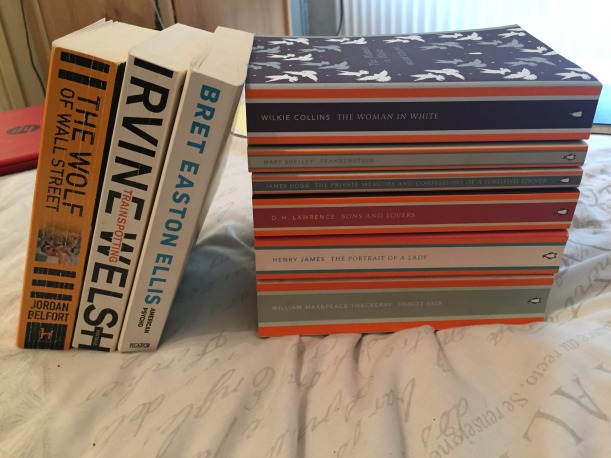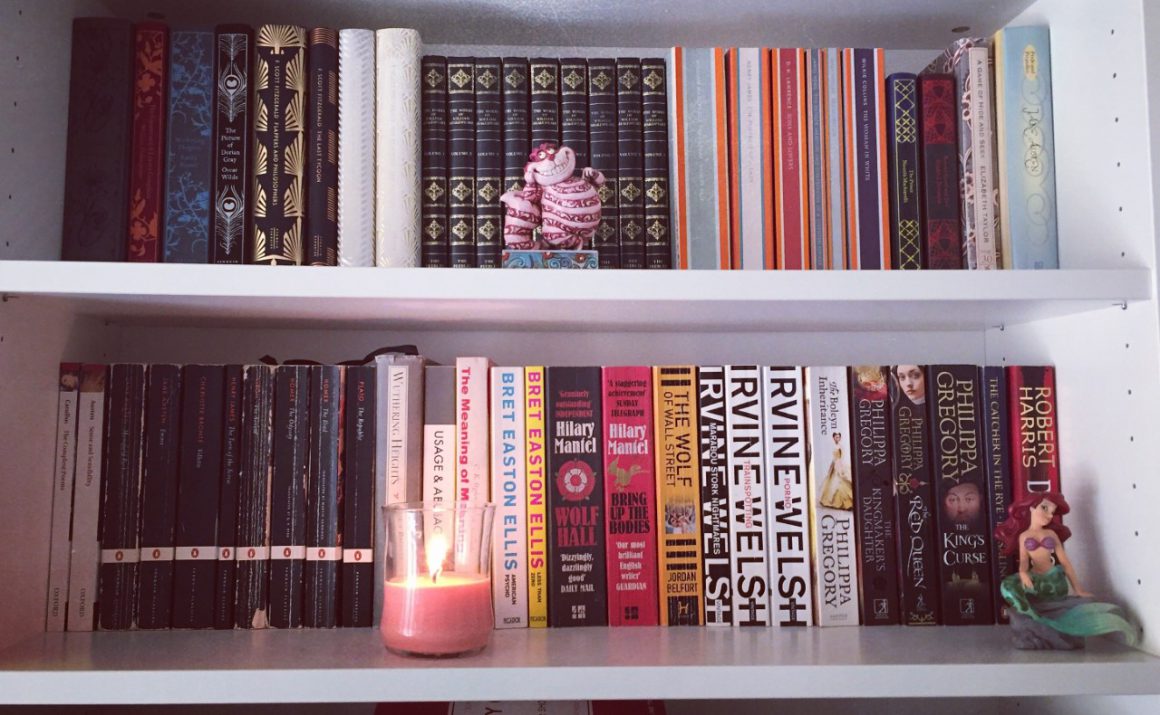
I’m now at the stage where I have almost finished my Literature degree; alongside this I’m gaining some experience by working in a publishing house. I keep up to date with the trends in book market; although I doubt I’d ever be able to predict them or guess how long they may last. So I really pay close attention to EVERY opinion which I hear relating to literature and the book market. In my personal experience, I’ve noticed a growing feeling of disapproval of “the classics” in literature.
Before I give my opinion on their validity, I’ll run through a couple which spring to my mind as being particularly important; Pride and Prejudice, The Great Gatsby, Moby Dick, Wuthering Heights, 1984, Vanity Fair and The Catcher in the Rye. I know it’s a relatively abstract concept, but this at least gives an idea of my own personal opinion. There are hundreds of books which fall into the category- but there are also millions that do not. Also, I don’t just have a preference for the Anglo-American literature, I also adore; War and Peace, The Aeneid, Lolita, Madame Bovray, The Iliad and The Divine Comedy. (Side note, I would love to hear what texts other people consider to be particularly important classics, I’m making a list of highly recommended ones which I want to get around to reading).
Now that I’ve mentioned some texts, I can move on to the specifics of what I’ve been noticing. I’ve encountered a lot of people studying literature, who say that they simply don’t like the classics. I don’t pretend to get that viewpoint; I know not every classic speaks to everyone, but I think there must be one out there that appeals on a level to every one? If people aren’t giving the classics a chance, I was once hugely guilty of doing the opposite, if it was published after 1955 I probably didn’t want to know. Although, after much persuasion, I gave Irvine Welsh a chance, and realised that actually I should be giving modern literature a lot more credit than I had been.
So I’ve changed my attitude towards modern literature; after all, an editor who can’t stomach new authors would not survive very long in the publishing industry. Despite that, my pet hate will always be the association many lit students make between those who love the classics and snobs. Having an appreciation for the great writers of the past, without whom many of the popular books of our time would not have been possible, is not synonymous with literary snobbery. Without the Marquis Du Sade, Fifty Shades of Grey could never have been published- the content would have been deemed too shocking if the Marquis had not been determined to write erotic and sadistic literature all those years ago. Without Jane Austen, Bridget Jones’ Diary could have ended up as a very different story. Even the film industry has been influenced by the classics; without Shakespeare, we could not have had She’s the Man, and that is not the world I want to live in. I could go on, but I’m sure you get the picture.
The classics have an influence which is impossible to measure; take T.S Eliot’s The Waste Land; keeping track of the literary allusions in that is nearly impossible without the help of several study guides and Wikipedia- and that is just one man’s poem. Without them, literature would not be the same as it is today. I don’t think appreciating this is something which should be frowned upon. Even in university, when the electives start being decided upon, it is always those with a heavier percentage of classic titles on the reading list with the smallest number of students enrolled. Don’t get me wrong, I think it’s important to study more modern work too, but classic literature seems to be dying a death unless it is forced upon students in compulsory modules. I know there is the popular argument, ‘the classics have dominated universities for hundreds of years, is it not time to give other authors a chance?’. Yes, give them a chance, but this shouldn’t mean that the writers who prefigured their work should be ignored either.
People often cite their reason for studying history to be this, that it is only by understanding the past, that you can begin to make sense of the present- so is literature any different? Appreciation for Austen and Nabakov does not mean that I consider Person A’s love for Harry Potter or Person B’s obsession with The Hunger Games to be inferior to my own taste; these might be books that I have read and disliked, but the world would be an incredibly boring place if we all liked the same things.

Hi there! I agree with you on this very much. The classics were essential to the development of modern literature and will always be significant. Although some may think differently, I think it’s important to always keep the classics in our minds and hearts; it’s important to remember them, because if we don’t, who will?
LikeLiked by 1 person
Hi, it’s nice that someone agrees with me on this! Definitely, without the classics many of the books we have enjoyed in more recent times would never have been possible. They’re more niche now than ever before, and, like you, I hope that people remember and love them.
LikeLiked by 1 person
Brilliant post!
LikeLike
Thank you 😊
LikeLike
I just dropped in to say thank you for visiting my blog and for the ‘follow’. I really enjoyed reading this post and am much in sympathy with your final paragraph.
LikeLike
You’re welcome! I’m glad that you enjoyed it 🙂 thank you!
LikeLike